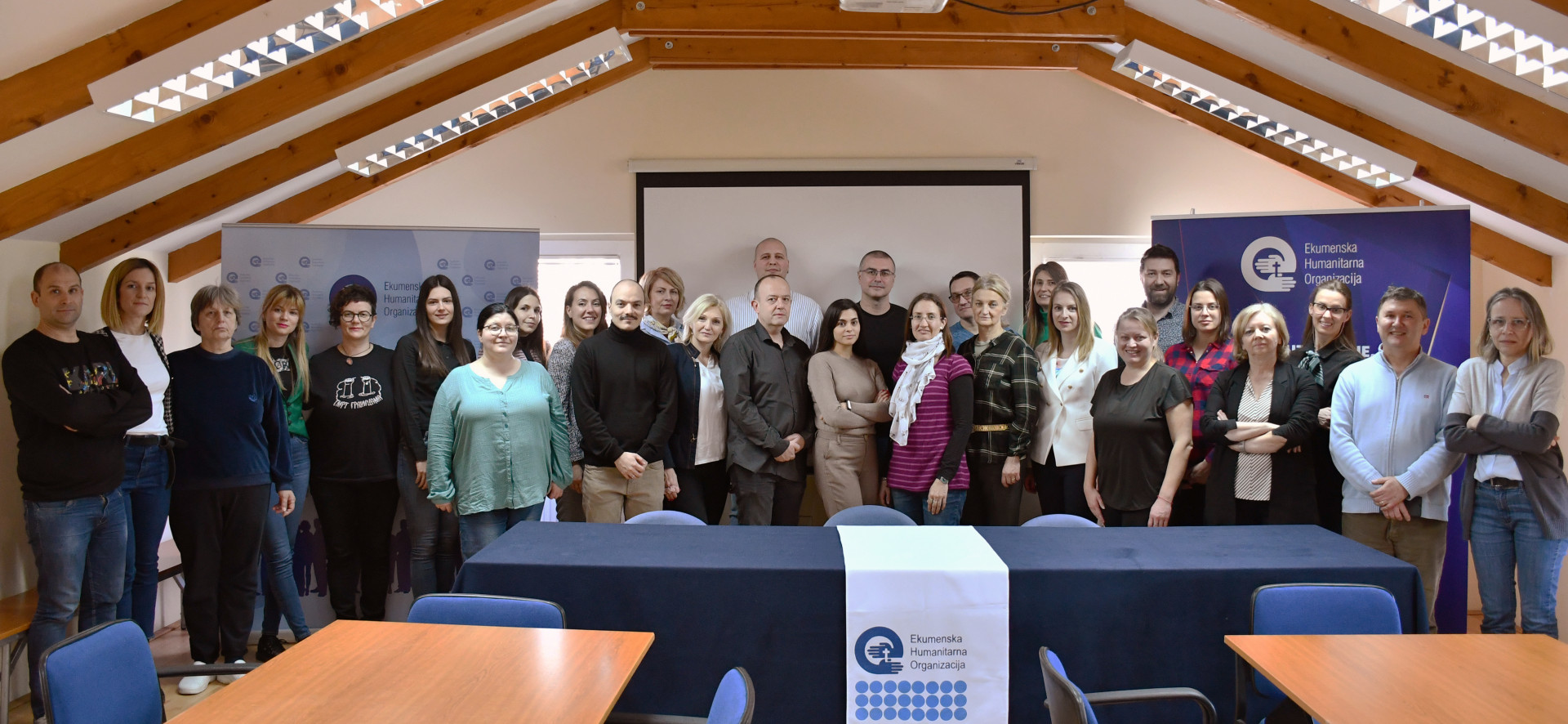The Ecumenical Humanitarian Organization (EHO) was founded on the 19. of February 1993 in Novi Sad on the initiative of the World Council of Churches. The reason for its establishment at that moment was the desire to respond in an organized and efficient way to the needs of the vulnerable population of Vojvodina, regardless of religious or national affiliation, and to provide them with appropriate humanitarian assistance (primarily in the form of medicines, hygiene products and firewood). Thanks to these predominantly humanitarian activities, EHO was recognized as a leading humanitarian organization during the 1990s. Since it was founded by representatives of various churches, the organization was at the same time a unique example of cooperation between churches in performing diaconal work.
The founders of EHO are representatives of the following churches:
- Slovak Evangelical A.B. church in Serbia;
- Reformed Christian church in Serbia;
- Diocese of St Nikolai in Ruski Krstur;
- Evangelic Christian A.B. church in Serbia-Vojvodina.
Over time, the organization has evolved and changed, successfully responding to the new needs of society. The focus has gradually been placed on development programs and projects and EHO has evolved from an organization that distributes humanitarian aid to an organization that comprehensively supports various vulnerable groups in our society. EHO has often played a pioneering role in creating initiatives that contribute to solving social problems and empowering marginalized groups. However, our humanitarian working dimension and organizational capacity for quick response on societal changes was not neglected. These organizational advantages were proven during 1990's crises icluding the post-war years, during the NATO bombardment crises, during floods in Serbia in 2014, during the refugee /migrant crises in 2015-2016, during the COVID-19 Pandemics in 2020-2022, and also the 2023 floods in the central Serbia.
The development of the organization was not only in its program area. EHO has also spread geographically: from the activities implemented in Novi Sad and Vojvodina, it has spread to the entire territory of Serbia. Also, since 2006, EHO, thanks to traditional church donors, has its own functional premises with offices, classrooms, rooms for working with users, a library, a warehouse space, a laundry room and rooms for used clothes and shoes. In addition, there is a courtyard facility, the Social Diaconian Center "Karolj Bereš", which includes a club for seniors and a center for people with disabilities. Until the construction of the EHO center, employees worked in eight rented offices in the city, which was accompanied by difficult planning of projects and activities of the organization for a longer period. Finally, there are the employees, the greatest value and resource of the organization. Professional and dedicated associates have always been part of the EHO team - some of them today work diligently in EHO, and others have continued to apply their knowledge and experience gained in other civil society organizations and government institutions.
This entire development path would not have been possible without the man whose vision was built by EHO and who devoted himself to the work and development of the organization until the end of his life, Károly Béres, a priest of the Reformed Christian Church in Serbia, who led the organization until 2008. He will be remembered as a man who made decisions in difficult times, had the courage to accept risks, stand behind his decisions, but also stand behind the people he worked with and whom he always encouraged to take the initiative and encourage them to personal development. Although he left us too early, his mark is still visible today in the work and development of the organization.
Directors of the Ecumenical Humanitarian Organization:
- from 1993 to 2008: Károly Béres
- from 2008 to 2009: Anna Bu (Acting Director)
- from 2010 to 2015: Vladislav Ivičiak
- end of 2015: Edit Mokus (Acting Director)
- from 2016 to 2019: Tilda Gyenge Szlifka
- from 2020: Anna Brtka Valent
